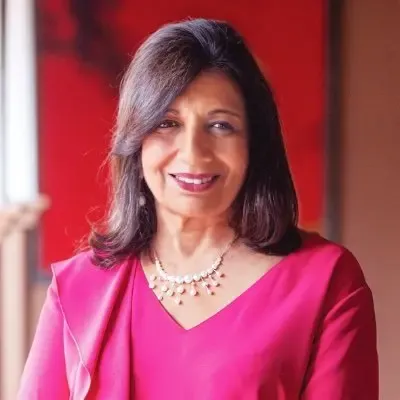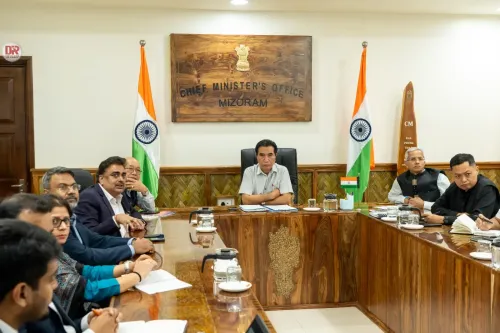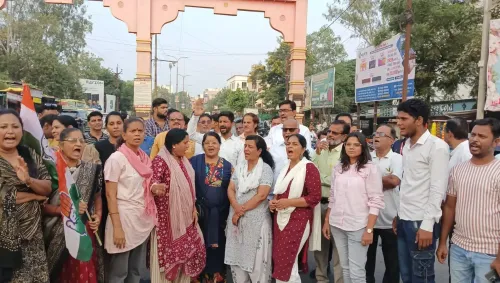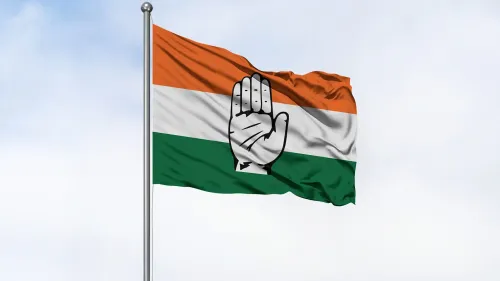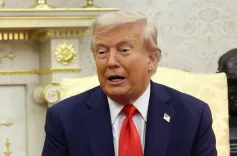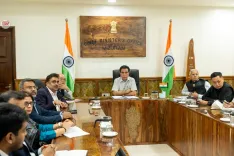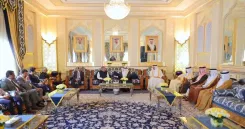Are India and UAE Targeting $100 Billion in Non-Oil Bilateral Trade?
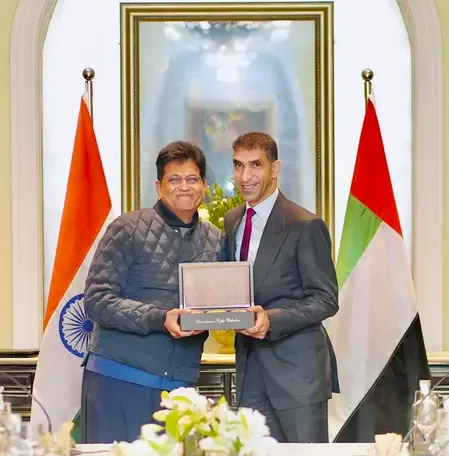
Synopsis
Key Takeaways
- $100 billion target for non-oil bilateral trade by 2030.
- Strengthening of the Comprehensive Economic Partnership Agreement (CEPA).
- Focus on collaboration in renewable energy, healthcare, and digital infrastructure.
- Formation of the Emirates Drug Establishment to aid Indian pharmaceutical firms.
- Launch of the Bharati Scheme to support food and agritech start-ups.
New Delhi, Sep 1 (NationPress) India and the United Arab Emirates (UAE) have committed to enhance their Comprehensive Economic Partnership Agreement with a goal of $100 billion for non-oil bilateral trade, influenced by the evolving landscape of global trade following the significant increase in US tariffs announced by President Donald Trump.
This matter was brought up during a meeting conducted by Union Minister of Commerce & Industry Piyush Goyal and UAE's Minister of Foreign Trade, Thani bin Ahmed Al Zeyoudi, last week, focusing on deepening the India–UAE Comprehensive Economic Partnership Agreement (CEPA), as per an official statement released on Monday.
The ministers assessed the advancements made under the CEPA and reaffirmed their mutual vision of expanding bilateral trade towards the ambitious target of $100 billion in non-oil, non-precious metals trade by 2030. Their discussions encompassed collaboration in emerging sectors like renewable energy, digital infrastructure, supply chain resilience, and healthcare.
Both ministers stressed the significance of close cooperation in the present global context to fortify the bilateral economic partnership. Goyal highlighted the resilience and intrinsic strengths of the Indian economy, which have propelled it forward during trying times. They acknowledged the importance of collaborating with diverse partners for mutual benefit.
They also emphasized the urgent need for timely trade data sharing to enhance monitoring under the CEPA and agreed that the Sub-Committee on Services will convene within two months. The Indian delegation welcomed the establishment of the Emirates Drug Establishment, which plays a crucial role in addressing the concerns of Indian pharmaceutical companies. On issues relating to market access and regulation, both ministers committed to resolving matters promptly in the CEPA Joint Committee.
Goyal appreciated the UAE’s increasing investments in India’s infrastructure, logistics, and food processing sectors, commending Dr. Thani’s leadership in promoting multilateral trade cooperation. They noted the significance of initiatives like the Local Currency Settlement System (INR–AED) and Bharat Mart in the UAE as essential facilitators of trade. The meeting highlighted the India–UAE partnership as a pivotal alliance of the 21st century, grounded in innovation, sustainability, and shared prosperity.
The two ministers also co-chaired stakeholder meetings with representatives from the pharmaceutical and food industries. In the pharmaceutical sector, key topics were addressed in light of changing geopolitical challenges. Both sides exchanged insights on enhancing trade in pharmaceuticals and healthcare products. The UAE expressed optimism about accelerating registration processes and regulatory support, while India showcased its readiness for inspections and audits by UAE authorities. They also discussed emerging opportunities in traditional medicine, especially focusing on ayurvedic products under the India–UAE collaboration.
In the food sector, the APEDA unveiled the Bharati Scheme to nurture food and agritech start-ups, with over 100 companies set to receive support for brand development and business-to-business partnerships. The APEDA also signed a Memorandum of Understanding with DWTC to have India as the partner country in the 2026 edition of Gulf Food, Dubai. More than 1200 sqm of exhibition space will be dedicated to Indian businesses in the food, marine, tea, coffee, and spices sectors. The UAE addressed concerns from the Indian food and beverages industry, including issues related to elevated retail prices, price norms, and mandatory testing for rice shipments.

